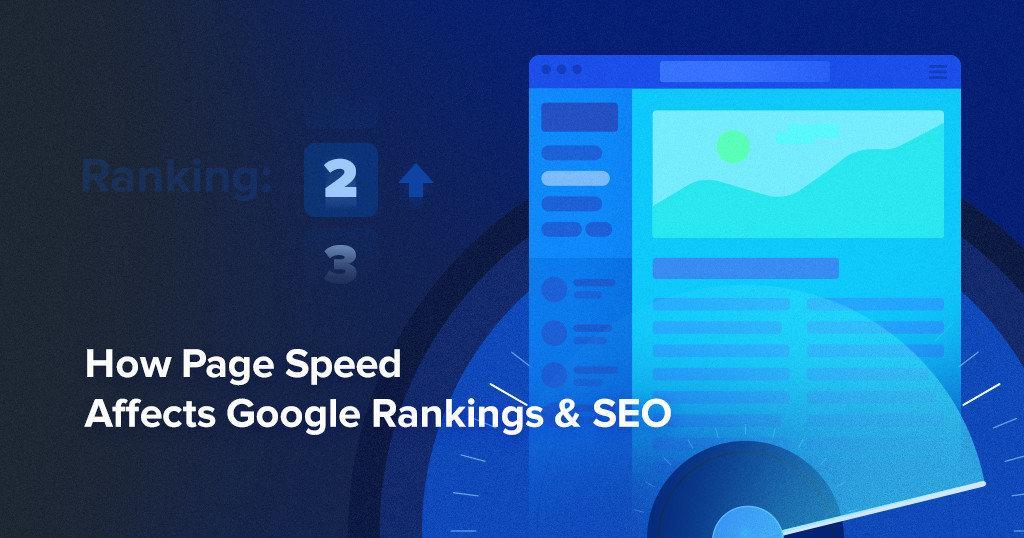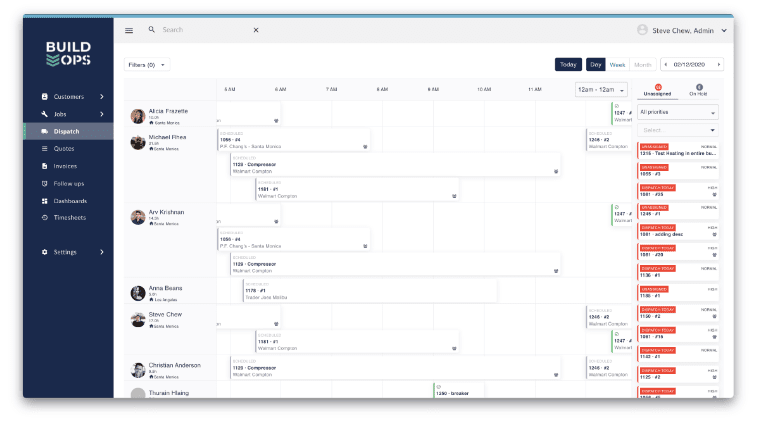Web developers frequently invest considerable effort in enhancing page speed to enhance the user experience. Historically, Google favoured websites that loaded quickly with higher rankings compared to slower ones.
This raises the question: Does page speed still play a role in search rankings today? And if it does, what level of importance does it hold?
In this article, we will explore the connection between page speed and SEO, evaluating the degree to which speed continues to impact search results.

What is Page Speed?
Page speed refers to the time it takes for a web page to fully load and display its content in a user’s web browser. It is often measured in seconds or milliseconds and is an important factor in the overall user experience of a website. Page speed encompasses various aspects of a webpage’s loading process, including:
- Loading Time: The time it takes for the browser to retrieve all the resources (such as HTML, CSS, JavaScript, images, and multimedia) required to render a web page.
- Rendering Time: The time it takes for the browser to process and display the content on the screen after receiving all the necessary resources.
Page speed is important because it directly impacts user satisfaction and can affect various aspects of a website’s performance, including:
- User Experience: Faster-loading pages provide a better user experience. Users are more likely to stay engaged and interact with a site that loads quickly, while slow-loading pages can lead to frustration and higher bounce rates.
- Search Engine Rankings: Search engines, like Google, take page speed into account when determining search rankings. Faster-loading pages are often favored in search results because they contribute to a better user experience.
- Conversion Rates: Slow-loading pages can lead to lower conversion rates for e-commerce websites or websites with specific call-to-action elements. Users are less likely to complete a purchase or sign up for a service on a slow website.
- Mobile Experience: Page speed is particularly important for mobile users, as mobile devices may have limited processing power and slower internet connections. Mobile-friendliness and fast loading are key considerations for mobile SEO.
To optimize page speed, web developers often employ techniques such as optimizing images, minimizing server response times, leveraging browser caching, reducing unnecessary scripts, and employing content delivery networks (CDNs) to serve content from geographically closer locations to users. These efforts help ensure that web pages load quickly and efficiently, providing a better experience for visitors.
The Proof: Page Speed Is A Ranking Factor
It was believed that pages loading quickly could potentially receive a boost in Google’s search rankings. The speed is assessed based on how rapidly a page loads after a user clicks a link in the search results, a metric now evaluated using Core Web Vitals.
Google’s PageSpeed Insights tool is used to measure page load speed, which has added to the arguments suggesting that speed plays a role in rankings. These assumptions are grounded in the understanding that Google aims to deliver pages that provide a positive user experience, making fast-loading pages advantageous.
The concept of Accelerated Mobile Pages (AMP) was built on the idea that it’s more satisfying when pages load instantly upon clicking. However, the pursuit of a search results page with lightning-fast links may lead to the exclusion of slower yet potentially more relevant pages.
This is where the argument in favour of page speed as a ranking factor encounters limitations. Google consistently emphasizes that relevance is the primary ranking factor. If fast-loading pages were automatically given preference, they could potentially outrank more pertinent content that offers better answers to users’ queries, thereby placing searchers at a disadvantage.
Prioritizing speed at the expense of content quality ultimately harms users.
The debate regarding whether page speed truly influences rankings has generated various arguments within the field of SEO. To gain clarity and dispel misconceptions surrounding page speed, let’s examine the available evidence.
Ways to Enhance Page Speed for Increased Traffic and Conversions
The Previous Evidence: Page Speed A Ranking Factor
For quite some time, Google has regarded the speed of websites as a factor influencing their rankings in search engines. In April 2010, Google made an announcement that its algorithm would start taking website speed into account when determining the rankings of search results. As Google stated at that time:
“Like us, our users place a lot of value in speed – that’s why we’ve decided to take site speed into account in our search rankings.”
The initial adjustment was implemented exclusively for desktop search results. It wasn’t until almost ten years later, in July 2018, that Google finally introduced page speed as a ranking factor for mobile search results.
According to an official company announcement:
“Users want to find answers to their questions quickly and data shows that people really care about how quickly their pages load.
The Search team announced speed would be a ranking signal for desktop searches in 2010, and as of this month (July 2018), page speed will be a ranking factor for mobile searches too.”
Current Evidence: Page Speed A Ranking Factor
In April 2023, Google made updates to its documented ranking systems page, notably removing the “page experience” system from the list of ranking systems. However, “page experience” received its dedicated page in the documentation, and Google explicitly emphasized that its algorithms directly recognize and reward positive page experience signals.
Nevertheless, the removal of “page experience” from the ranking systems page came as a surprise to the SEO community. Page speed is an integral component of page experience, so what implications does this hold for speed as a ranking factor?
This shift followed Google’s “helpful content update,” which aims to elevate pages based on factors like expertise, authoritativeness, trustworthiness, and semantic analysis rather than solely quantitative metrics.
In the documentation regarding page experience, Google clarifies that numerous signals contribute to page experience. Load times may or may not carry significant weight within this system, which implies that page speed remains a ranking factor but may not always have a substantial impact.
Google’s fundamental principle has consistently been the primacy of relevance. Swift loading times do not automatically equate to high-quality, beneficial content. Superior content, albeit slightly slower, can potentially outrank inferior content that loads more quickly. This doesn’t diminish the importance of page speed entirely, though. Page experience plays a role in how users engage with content, and the algorithms acknowledge and reward positive page experience elements, including speed.
Considering the proliferation of mobile browsing and improved internet connectivity, page speed may not be as pivotal a differentiator as it was a decade ago when slower connections were prevalent.
It’s evident that these changes primarily pertain to organizational changes and not actual alterations to the underlying algorithms.
Page Speed Is Still A Ranking Factor
As of April 2023, it is confirmed that page speed continues to be a factor considered in Google’s search results rankings. Its impact may vary, but it remains one of the signals used to assess page experience.
Although page speed remains crucial for enhancing user experience, its influence on search rankings may not be direct when other content-related issues are present.
Google continues to emphasize that relevance stands as the foremost ranking factor. Page experience is significant in terms of its influence on a user’s interaction with your website, and speed plays a part in that equation.
Would you like to read more about “Is Page Speed A Google Ranking Factor” related articles? If so, we invite you to take a look at our other tech topics before you leave!
Use our Internet marketing service to help you rank on the first page of SERP.
![]()













